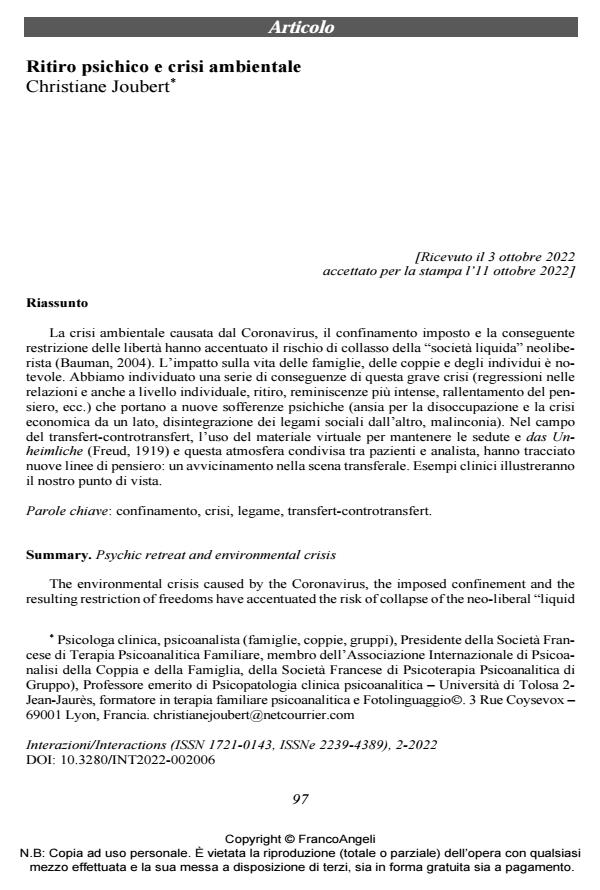Psychic retreat and environmental crisis
Journal title INTERAZIONI
Author/s Christiane Joubert
Publishing Year 2022 Issue 2022/2
Language Italian Pages 8 P. 97-104 File size 163 KB
DOI 10.3280/INT2022-002007
DOI is like a bar code for intellectual property: to have more infomation
click here
Below, you can see the article first page
If you want to buy this article in PDF format, you can do it, following the instructions to buy download credits

FrancoAngeli is member of Publishers International Linking Association, Inc (PILA), a not-for-profit association which run the CrossRef service enabling links to and from online scholarly content.
The environmental crisis caused by the Coronavirus, the imposed confinement and the re-sulting restriction of freedoms have accentuated the risk of collapse of the neo-liberal "liquid society" (Bauman, 2004). The impact on the lives of families, couples and individuals is considerable. We have identified a number of consequences (regressions in relationships, and on an individual level, too, withdrawal, more intense reminiscences, slowing down of thought etc.). The aftermath of this major crisis leads to new psychic suffering (anxiety about unem-ployment and the economic crisis on the one hand, disintegration of social ties on the other, melancholia). In the transference-countertransference field, the use of virtual material in order to maintain the sessions and das Unheimliche (Freud, 1919), of this shared atmosphere between the patients and the analyst, have drawn new lines of thought: a rapprochement in the transferential scene. Clinical examples will illustrate our point.
Keywords: confinement, crisis, link, counter-transferential transference.
Christiane Joubert, Ritiro psichico e crisi ambientale in "INTERAZIONI" 2/2022, pp 97-104, DOI: 10.3280/INT2022-002007